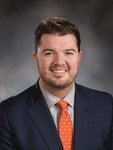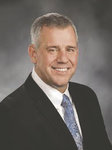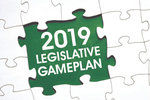








The Washington State Legislature will re-convene as a full government body Jan. 14. The Reflector sent out a list of questions to local lawmakers to get an idea of what their goals are and how they plan to address locally-pertinent issues.
Editor’s notes: Responses have been edited for clarity and brevity; Rep. Paul Harris, R-Vancouver, did not submit answers by press deadline; some lawmakers did not complete the entire questionnaire; some of Rep. Vicki Kraft’s answers were gleaned from a submitted news release.
17th Legislative District
Sen. Lynda Wilson, R-Vancouver
Committees:
• Ranking member: Financial Institutions, Economic Development and Trade (new committee)
• Law and Justice
• Ways and Means
What are your top priorities for this legislative session?
My priorities are first and foremost trying to halt any new tax increases, such as a new state income tax (on capital gains) or a carbon tax. State government is already collecting far more revenue than expected through the taxes it already imposes. I fear our state’s employers will have to be on the defense this year — and I’m hoping to head off any overly burdensome regulations that hinder growth and prosperity. I will continue to try and convince the majority party how important the proposed reduction of the manufacturing (business and occupation) tax rate is to that industry. We approved a reduction in 2017, but the governor vetoed it. Manufacturing is the one sector of our economy that is lagging, and taxing non-aerospace manufacturers at the same lower rate as those involved in aerospace should help turn that around.
Are you planning on sponsoring any specific bills?
I have several new bills in the works:
• A tweak to the Growth Management Act that allows for public safety to be equally considered with environmental matters concerning sewer and sanitation. This will be important in the continuation of the use of rural lands, especially as it relates to freight rail-dependent uses.
• A bill to allow Community and Technical Colleges the ability to hire their own law-enforcement officers if they choose. At this point, they are not allowed the same options for protection to accomplish campus safety as all other public schools in Washington.
• A bill dealing with real-time notification and electronic monitoring if a perpetrator gets too close to a victim of domestic violence.
I have several other bills that are not quite ready, but I’m working through them now.
State Growth Management Act: Is there anything in the current law you would like to see changed? Conversely, is there anything of note you want to keep the status quo in the Act?
The GMA has now been in effect for 27 years. There are 13 points in the act that are supposed to be equally applied. However, the environmental area of it has outweighed all of the other factors. The GMA’s provisions about economic development need to be given at least the same amount of weight as the environmental part. I have a few bills that will address much-needed changes to the GMA, but needless to say, any improvements proposed will be incremental at best, if they are to have any hope of passing and being signed into law.
Local taxpayers were hit hard with new property levies last year. Given it’s a budgetary session in 2019, what do you feel deserves more statewide funding and what could use a little less?
There’s good news coming for local taxpayers, as the bipartisan approach to K-12 funding we agreed upon will mean smaller property-tax bills in 2019 in most parts of our state. I’m aware that some school districts will need to figure out ways to sustain the employment contracts they recently negotiated, but the answer is not for districts to pursue permission to start raising local property taxes again — or for the next state budget to include funding for bailouts. The treatment of mental health is an issue that is pervasive throughout Washington and has been sidelined for too long. We need more funding and attention focused on that now that the question about fully funding public education (raised by the McCleary court ruling) is behind us, an opinion shared by the state Supreme Court.
Last year the Legislature tried to rush through a bill that to many would have hindered transparency within state government. What steps can or will you take in order to promote transparency and trust between Olympia and the taxpaying public?
We need to find a way to address questions about government transparency, and build on the trust that I think exists already, yet still be able to protect the sensitive issues our constituents often bring up. Last year’s bill, had it not been vetoed, would have achieved a higher level of transparency that didn’t exist previously. And as long as our staff is allowed to fulfill requests for records, the way staff members do elsewhere in government, I think we can find a good compromise with those who are raising questions about access. A task force that met during the interim has put recommendations on the table, and I look forward to discussing what they’ve come up with.
One of the biggest concerns among locals is keeping a particular aesthetic in Clark County while still pursuing economic avenues that promote or keep the region’s independence. Is there anything at the state level that can be done in order to maintain a balance between rural charm and more urban, industrial development?
Most of our rural citizens have to travel outside of their community, often to Oregon, to get to their jobs. We owe it to Clark County residents to find ways to increase economic opportunities where they both live and play.
Knowing that transportation infrastructure can be critical to attracting employers, I sponsored the 2017 law which encourages our state’s short-line railroads to operate as intended, locally and across Washington. I understand that some may wonder whether rural charm and new economic opportunities can co-exist peacefully, but I am also hesitant to look too much to state government for help in addressing that concern. I still believe it’s possible to work locally to encourage business development that is agreeable from a rural perspective — something that would be a win for all.
Rep. Vicki Kraft, R-Vancouver
Committees:
• Ranking member: Local Government
• Appropriations
• Education
What are your top priorities for this legislative session?
• Reducing business and occupation taxes on small businesses and the frequency of tax filing.
• Explore options for a third bridge connector between Vancouver and Portland to address congestion relief on the I-5 corridor without requiring mass transit/light rail.
• Target sex traffickers by increasing fines against those who sexually exploit minors.
I expect it will be a busy 105-day session in Olympia, especially as we create a new two-year budget. My goals are to ensure fiscal responsibility, protect our taxpayers, do what we can to foster and not harm economic growth for our small businesses, reduce traffic congestion, and ensure safety for families.
State Growth Management Act: Is there anything in the current law you would like to see changed? Conversely, is there anything of note you want to keep the status quo in the Act?
Regarding the Growth Management Act, we need to look at various reforms including:
• Minimizing development regulations, such as the stormwater permitting requirements. These burdensome steps and regulations result in additional costs to developers which in turn increases the price of housing, whether it’s a single mother looking to rent an apartment or the first-time homebuyer. These additional costs end up being passed on to the residents. We need to make it easier for buyers and renters to afford a home.
•Reviewing UGB/Urban Growth Boundary requirements. There needs to be additional flexibility in the boundaries, while still protecting our rural communities. Lack of the supply of land in many counties, including Clark County, has made it difficult for developers to build new homes or housing units. Some easing of boundary requirements will increase the amount of available land for development and help lower housing costs.
•Ensuring the Growth Management Act board is reflective of the expertise needed to understand and address the unique issues GMA requires.
Last year the Legislature tried to rush through a bill that to many would have hindered transparency within state government. What steps can or will you take in order to promote transparency and trust between Olympia and the taxpaying public?
In 2018, I voted no on the Legislative Public Records Act because the legislative process was not transparent enough, especially on an issue this significant for our constituents. I will continue to promote transparency and accountability.
18th Legislative District
Sen. Ann Rivers, R-La Center
• Minority whip for 2019-2020
Committees:
• Health Care
• Ways and Means
• Rules
• Environment and Tourism
What are your top priorities for this legislative session?
There’s still work to do in the K-12 arena, specifically support of special-education programs, and a list of things in the health care category, like the opioid epidemic, and improving services for people with mental illnesses. For Clark County specifically, I am looking to address how the state’s Growth Management Act prevents our county from getting its fair share of funding from the state.
Of the five legislative districts that include portions of Clark County, only the 18th District encompasses part or all of every city in the county. I expect that will lead to some important requests for community-level funding via the state’s capital budget (which is separate from the operating and transportation budgets). As a member of the Ways and Means committee, I’m in a good position to field those.
More broadly, I definitely want to keep spending and tax rates under control — and be a voice of reason when it comes to a new state operating budget. State government has a record amount of money in reserve and an unexpectedly large amount of tax revenue coming in. Even so, we already see the governor and legislators from his party calling for new taxes, including a state income tax. It’s as though there can never be enough money to spend.
Are you planning on sponsoring any specific bills?
I’m expecting to introduce a slew of bills that are related to issues brought to me by constituents. The majority of these are going to be adjustments to existing laws. And there’s at least one brand-new law I plan to pursue: Naming Sasquatch as the official state “cryptid.” You may recall this idea came to me from a young boy in our district, and was the subject of a bill in 2017. I realize some grown ups might question whether a Sasquatch bill is a good use of lawmakers’ time, but to me it’s a great way for children to learn about the process of governing and engaging in their government.
State Growth Management Act: Is there anything in the current law you would like to see changed? Conversely, is there anything of note you want to keep the status quo in the Act?
When the GMA was adopted in 1990, Clark County’s population was around 238,000. Last year the state estimated our population at 471,000 — just about double. As more people have come into the county, the conflicts that trace back to the GMA have grown too. In 2018 as a member of the Senate budget committee, I helped secure money to have the Ruckelshaus Center (a non-partisan public-policy organization administered and hosted by Washington State University and University of Washington) take a long, close look at what’s working and what’s not when it comes to the GMA. The idea is to come up with a road map that will allow the Legislature to make informed decisions going forward.
The recommendations from the Ruckelshaus Center are due later in 2019; in the meantime, I want to have conversations about things like how GMA affects funding for Clark County, and who provides services (like utilities) to property, and permitting. When 30 to 40 percent of the cost of building a new home is for permits alone, you start wondering whether it’s about managing growth or prohibiting growth. And although Clark County doesn’t have Seattle’s level of homelessness, there is a direct connection between the GMA, the supply of affordable housing and the number of homeless people in our state.
Local taxpayers were hit hard with new property levies this year. Given it’s a budgetary session in 2019, what do you feel deserves more statewide funding and what could use a little less?
First of all, local taxpayers are supposed to see their school-related property taxes drop in 2019. That’s because a new limit on local levies, which was one of the major changes Democrats and Republicans approved in 2017 to modernize the state’s school-funding system, is to take effect.
As for budget priorities, I expect we’ll see new investments in special education programs and mental health services. I also expect calls for more money to go elsewhere within our public school system, despite the fact that the past five years brought an additional $13 billion for basic education — the greatest infusion of K-12 funding in state history. State spending per student has nearly doubled, putting Washington on track to rank fifth in the nation in that category next year; there’s been an unprecedented increase in the number of teachers and for the first time in 35 years, spending on K-12 accounts for more than 50 percent of the budget. Those are things to keep in mind when the governor and others talk about undoing the constitutionally-based school-funding changes I helped to negotiate, and allowing property taxes to start climbing again.
Last year the Legislature tried to rush through a bill that to many would have hindered transparency within state government. What steps can or will you take in order to promote transparency and trust between Olympia and the taxpaying public?
As I understand it, legislation is expected to come forward from the recommendations made by the group of legislators and news media representatives who were meeting in recent months to discuss questions about transparency. I’ll study any such proposal closely to see if it represents progress, and if so I’d anticipate supporting it.
One of the biggest concerns among locals is keeping a particular aesthetic in Clark County while still pursuing economic avenues that promote or keep the region’s independence. Is there anything at the state level that can be done in order to maintain a balance between rural charm and more urban, industrial development?
First, let’s appreciate how other counties in our state are less able to attract new residents and new employers than Clark County, and might wish they were in a position to be concerned about how much growth is too much growth. That said, we all detest sprawl but we also value property rights. The challenge is to thread that needle, so that people aren’t constantly running into some “non-conforming” situation when they want to do something with their land.
I know growth is an emotional and complicated topic, but at the end of the day I think this is the real question: To what extent do we want decisions about growth in Clark County made in Olympia, as opposed to having the decisions made here in Clark County? To me the state’s role is to make sure communities have a range of tools, and options, and from there the responsibility for “keeping a particular aesthetic” belongs to the locals.
Rep. Larry Hoff, R-Vancouver
Committees:
• Assistant ranking: Consumer Protection/Business
• Appropriations
• Labor and Workplace Standards
What are your top priorities for this legislative session?
My top priorities will always involve being an advocate for small businesses and the hard working citizens of the 18th Legislative District. Coupled with that global objective, our regional transportation system obviously needs attention.
Are you planning on sponsoring any specific bills?
Our Governor and his supporters have proposed new ways to separate us from more of our hard earned money. On top of the bills I will be initiating, I will be spending a significant amount of time simply protecting our citizens from additional taxing proposals while searching for ways to cut the cost of government.
In addition, I am currently working on an issue involving local landowners, another concerning the protection of personal information and yet another that involves changes benefiting the fundraising ability of non-profit organizations.
State Growth Management Act: Is there anything in the current law you would like to see changed? Conversely, is there anything of note you want to keep the status quo in the Act?
The GMA should absolutely be part of the focus for our next legislative session. The Act is several decades old and would benefit from a complete review. I believe that more local flexibility would enhance the GMA process while protecting the personality of our county and the objectives of our citizens.
Local taxpayers were hit hard with new property levies this year. Given it’s a budgetary session in 2019, what do you feel deserves more statewide funding and what could use a little less?
Our state’s mental health system is in need of attention. Currently, Western State Hospital has been federally decertified which results in the loss of $53 million in federal funding. The continued care of our state’s patients, regaining appropriate certification, and identifying ongoing solutions to these challenges should be a top priority.
Last year the Legislature tried to rush through a bill that to many would have hindered transparency within state government. What steps can or will you take in order to promote transparency and trust between Olympia and the taxpaying public?
Short of legal and ethical prohibitions, including constituent confidentiality, my legislative actions will be completely open, transparent and available for public review.
One of the biggest concerns among locals is keeping a particular aesthetic in Clark County while still pursuing economic avenues that promote or keep the region’s independence. Is there anything at the state level that can be done in order to maintain a balance between rural charm and more urban, industrial development?
Our county is blessed with the natural beauty of our rural personality while being poised for growth in our urban communities. It is imperative that we continue to honor that balance. Securing more local flexibility, involvement and control within the GMA will lend to balancing the growth of our communities while working to maintain the excellence of our rural areas.
Rep. Brandon Vick, R-Felida
Committees:
• Ranking member: Consumer Protections and Business
• Commerce and Gaming
• Finance (tax policy)
What are your top priorities for this legislative session?
Every year, I start with the very simple goal of finishing the legislative session on time, with a budget that lives within its means and does not impose any additional burdens on the people of Washington state. Beyond that, I plan to focus my efforts in a number of areas. One area of focus would be on addressing the affordability of housing by making common-sense adjustments to the Growth Management Act. A minor step forward in this area would allow for detached Accessory Dwelling Units in the unincorporated areas of a county. Another focus of mine will be to continue to fight for a quality education for our highly capable students. Education is not a one-size fits all system, and we need to do a better job of serving those students who exist outside of the standard parameters. Lastly, I regret that we will probably be busy on the Finance Committee this year. Despite record revenues, there have already been proposals made for a capital gains income tax, a carbon tax fee, an increase in the B&O tax, and several others. The state’s coffers are overflowing, and it is time to begin to prepare for the next downturn. With excess revenues coming through the door, there really is no need to raise taxes to fund the required services of the state government. I plan to aggressively advocate for a responsible budget that does not raise taxes, and maintains our promise to lower property taxes in 2019.
Are you planning on sponsoring any specific bills?
I have several bills in the works for 2019. Most of them have to do with my priorities that were outlined in the previous question. I will have legislation that allows counties to zone for detached accessory dwelling units. I will build on successful legislation from last year that provides for a more robust and accessible system of education for our highly capable students. I will continue with education from last year that seeks to clarify that local governments are not allowed to impose an income tax. In addition, I am working on a bill that would provide Washington citizens with a property tax rebate (or kicker) when the state takes in excess revenue.
There will be more issues on my plate as the session moves on, but this is a good sampling of what I have been working on in the interim.
State Growth Management Act: Is there anything in the current law you would like to see changed? Conversely, is there anything of note you want to keep the status quo in the Act?
The simple goal of the GMA was to force urbanization around the state, while maintaining open spaces for generations to come. While the goal of maintaining open spaces is both responsible and noble, there is no doubt that the citizens of the state of Washington have suffered because of this law. The GMA has tied the hands of counties when it comes to responsibly growing their populations. As a result, we have seen a rapid increase in the cost of housing in many parts of our state. Some of the increases are natural as we live in a great part of the world, but the GMA has artificially limited the supply of land on which to build housing. As long as we have the GMA in its current form, there will be no sub-$300K housing in Clark County. My personal opinion is that the counties know best how to responsibly grow their population. Open space is very important, but there is no real advantage having state bureaucrats make those decisions for us. I no longer see a need for the GMA, but understand that politics will likely force it to stay in some shape or form. The less restrictive that we can make it, the better it will be.
Local taxpayers were hit hard with new property levies this year. Given it’s a budgetary session in 2019, what do you feel deserves more statewide funding and what could use a little less?
The local taxpayers are due for a break, and I intend to fight hard to keep the promises that have been made to lower their property tax burden. The question of what needs more versus what needs less is appropriate, but also a bit simplistic. In the what needs more camp is funding for mental health, and mental health crisis beds/facilities. This is a simple fact that we will have to face as we are facing another court decision that went against the state. Even without the court decision, this is an appropriate area for the legislature to be focusing on.
When it comes to cutting from the budget, I believe that the most impactful and immediate course of action is to find more efficient ways to deliver government services. At times it seems as though the goal of state government is to add employees and systems just for the sake of doing so. I believe wholeheartedly that we can not only condense the systems and processes that are in place through technology, but that we can better contract with private enterprise to deliver services faster, cheaper, and with a higher standard of responsibility and rigor. These actions would save the taxpayer tremendously.
Last year the Legislature tried to rush through a bill that to many would have hindered transparency within state government. What steps can or will you take in order to promote transparency and trust between Olympia and the taxpaying public?
I am of the opinion that information is knowledge, and that the citizens should be able to thoroughly observe the actions of their elected officials. I do not sit on the task force that is dealing with the public records issue, but have opined the above sentiments to the work-group. I believe that my constituents have the right to expect a certain amount of privacy in their communications with me, some of which are covered by other parts of the law, but that a public servants actions and activities should be accessible to the general public.
One of the biggest concerns among locals is keeping a particular aesthetic in Clark County while still pursuing economic avenues that promote or keep the region’s independence. Is there anything at the state level that can be done in order to maintain a balance between rural charm and more urban, industrial development?
There may in fact be something that could be done at the state level, but my advice would be to steer as far away from that option as possible. The fact of the matter is that the people who live in our communities best understand these intricacies. You and I have the ability to go and talk to our city and county councilors, and make our opinions heard as to how our communities should grow and maintain balance. This same level of influence would not be available if a state bureaucracy were in charge of setting the standards, and those individuals would surely not be able to fully grasp the needs, wants, and desires of our neighborhoods. Keeping these decisions local is the best course of action.
20th Legislative District
Sen. John Braun, R-Centralia
Committees:
• Ranking member: Ways and Means
• Labor and Commerce
• Financial Institutions
• Economic Development and Trade
What are your top priorities for this legislative session?
• Improve mental health care and treatment. In 2019 we need to make the investments and policy changes necessary to correct our state’s failure to provide effective mental health treatment and care. Funding or policy changes alone will not solve these problems and patients and taxpayers must know that more money is tied to a long-term plan, clear goals, and accountability. After watching managerial malpractice at Western State Hospital result in the loss of $53 million in federal funding, I join many members of the public in demanding the executive branch better utilize mental health resources provided by the Legislature. Given the scale of the problem — already at crisis levels — and the time it takes to build, site, and staff mental health facilities we need to take major steps during the 2019 session.
• Provide ample and accessible special education funding. In recent years, the Legislature has made significant progress by resuming its role as sole provider for basic education. But there is more we must do to ensure the state is paying the right amount of the cost to provide a high-quality education to all special education students. We also must remove existing barriers for school districts to receive the funds they need for especially high-needs students. This is very important in communities with many small school districts, like in Southwest Washington, where meeting the important needs of some students can have an have a major impact on a district’s overall budget and cannot be absorbed by a larger student population.
• Reject calls for billions of dollars in higher taxes. The governor proposed raising state taxes by $5.4 billion per two-year budget and advocated for a $2.1 billion increase in local education property taxes. This comes at a time when the state budget is already set to grow by 9 percent without new taxes, by using the billions of dollars already coming into the state due to strong economic growth. It is clear we can fund our priorities without raising taxes on Washington residents and employers.
Are you planning on sponsoring any specific bills?
I am still working with community members, stakeholders, and staff on specific legislation addressing a variety of issues including mental health treatment, flood protection, special education, financial sustainability, tax reduction, and more. Once these are finalized over the next few months I will submit these bills for consideration by the full Legislature. Also, as the ranking Republican on the Senate Ways and Means Committee, much of my work goes into advocating for the best use of existing revenue and building a sustainable operating budget without adding additional taxes.
State Growth Management Act: Is there anything in the current law you would like to see changed? Conversely, is there anything of note you want to keep the status quo in the Act?
Reforms to the state’s Growth Management Act, ranging from very small to comprehensive, have been discussed quite a bit in recent years with little action. As with any law that is more than 25 years old, I agree we should revisit it to see if the intended goals are being met and if not, make necessary changes. This is especially important given the many changes in our state since 1990. While there’s no perfect way to address it, I am open to a range of options that would help us increase our statewide housing supply to meet the needs of our 2019 and future population, while still protecting rural lands and activities.
I would also like to implement reforms that provide more predictability for builders in order to reduce the cost of constructing housing and job centers. Bureaucratic delays, duplicative regulations, extended approval processes, and the use of excessive legal challenges by some to stop important economic development projects make it more expensive and difficult to build housing and create jobs.
Local taxpayers were hit hard with new property levies this year. Given it’s a budgetary session in 2019, what do you feel deserves more statewide funding and what could use a little less?
Washington state is going through a significant transition in how we pay for public schools, including the use of education property tax levies. In 2017, the Legislature passed a bipartisan overhaul that transitioned our state from an overreliance on local levies to a more equitable system. Because of negotiations with legislative Democrats this meant an increase in the state education property tax rate in 2018 before local levies are capped in 2019. The long term result of this plan is that more than 70 percent of state residents are already slated to see a net education property tax reduction beginning in 2019. While this property tax reform will serve Washington well in the long term due to more equitable school funding and tax rates, I remain disappointed we did not take advantage of our strong economic growth to avoid the one-year increase in property taxes. I believe the one-year increase in property taxes was unnecessary and I sponsored legislation to prevent it.
The investments we made in education already put us on track to significantly increase overall investments in schools this year, but there are smaller areas like special education that still need to be addressed. Additionally, mental health treatment and the facilities to provide care will also need more statewide funding in the upcoming years. I will also be working on ways to have the state make more investments in flood protection and water projects that are important to our 20th District community.
There are hundreds of areas inside the operating budget, which will likely exceed $50 billion dollars for the 2019-21 budget cycle, where we can bend the cost curve and demand better efficiency from our state government. This will require tedious, long term study of our current budget and agency proposals, but is necessary to ensure we maximize the use of taxpayer dollars. I remain hopeful that the current Senate and House majorities will be open to the careful preparation process we have used over the last three biennium to build a sustainable budget that does not require additional taxes.
Last year the Legislature tried to rush through a bill that to many would have hindered transparency within state government. What steps can or will you take in order to promote transparency and trust between Olympia and the taxpaying public?
The bill passed during the 2018 legislative session, which was subsequently vetoed by the governor, followed a 2017 lawsuit by a coalition of media members attempting to determine if state legislators were subject to the Public Records Act. For decades, legal counsel for the Legislature advised members of the Senate and House they were not subject to the requirements originally passed by voters in 1972.
However, a 2018 superior court ruling indicated that lawmakers are subject to the requirements and the case is currently under appeal to the state Supreme Court. Members of the media — the plaintiffs — are currently in the process of filing briefs with the Court after which representatives of the Legislature — the defendant — will have a chance to respond. Once that process is complete, the state Supreme Court will set a date to hear oral arguments before ultimately deciding the outcome.
While I believe the bill we passed defining what records would be made publicly available was better than the existing practice of providing nothing, I share the public’s concern that the process — which Senate Republicans had no control over — was incredibly flawed. Regardless of the outcome of the court case, residents of our state made it clear they want their state lawmakers to be more transparent.
As an elected representative, I respect the will of the voters and during this interim have worked on ways to make my own office more transparent, whether it be by releasing my legislative calendar monthly or providing other records upon request. While it’s out of my individual control following a change in the Senate Majority ahead of the last session, it is not clear that the Legislature will take any steps until the court case has been resolved.
One of the biggest concerns among locals is keeping a particular aesthetic in Clark County while still pursuing economic avenues that promote or keep the region’s independence. Is there anything at the state level that can be done in order to maintain a balance between rural charm and more urban, industrial development?
I do not believe there is a legislative solution to this challenge. On principle I believe the best we can do is provide as much local authority as possible and in doing so allow local governments the flexibility to build the type of community their citizens desire.
Rep. Ed Orcutt, R-Kalama
Committees:
• Ranking member: Finance
• Agriculture and Natural Resources
• Transportation
What are your top priorities for this legislative session?
• Balance the operating budget with existing revenues.
• Fight against any new or increased taxes on individuals, families, and employers.
• Protect natural resources industries.
• Expand manufacturing jobs.
• Explore options for local transportation solutions.
Are you planning on sponsoring any specific bills?
Yes. I am in the process of working with my policy staff on ideas and bill-drafting. Please stay tuned.
State Growth Management Act: Is there anything in the current law you would like to see changed? Conversely, is there anything of note you want to keep the status quo in the Act?
I am hoping the majority party is open to reforming the Growth Management Act in meaningful ways. It’s long overdue. We have seen implementation problems with the GMA, as some try to prevent growth rather than manage growth. This has prevented rural economic development and affordable housing in many areas of our state. I plan to work with my colleagues to improve economic development in rural areas and protect private property rights.
Local taxpayers were hit hard with new property levies this year. Given it’s a budgetary session in 2019, what do you feel deserves more statewide funding and what could use a little less?
The good news is, local levies are scheduled to drop in 2019 to offset the increase in the state levy. Our mental health system, special education, and wildfire prevention and response deserve more funding in the operating budget. As for reductions, we should go line-by-line in the operating budget to determine the effectiveness and efficiency of state programs and services. The results of this effort should guide our budget-reduction decisions.
Last year the Legislature tried to rush through a bill that to many would have hindered transparency within state government. What steps can or will you take in order to promote transparency and trust between Olympia and the taxpaying public?
My door is always open to meet with constituents. I try to respond to every phone call, email and letter I receive from those I represent. Anyone can sign up for my email updates, watch my video updates or listen to my radio appearances on my legislative website. TVW (our state’s equivalent to C-SPAN) offers comprehensive coverage of committee hearings, House and Senate floor action, and other activities involving the Legislature. The Legislature’s website also offers all kinds of information related to the House and Senate, laws and agency rules, bill information, agendas and schedules, committees, legislative agencies, and civic education. There are many windows into our citizen Legislature.
I voted for a bill last year that would have required state lawmakers to provide their calendars, communications with lobbyists and final disciplinary actions taken by the Legislature. The governor vetoed it. I will carefully consider any open-records legislation that comes before me next year. I’m committed to more transparency, without sacrificing constituent privacy.
One of the biggest concerns among locals is keeping a particular aesthetic in Clark County while still pursuing economic avenues that promote or keep the region’s independence. Is there anything at the state level that can be done in order to maintain a balance between rural charm and more urban, industrial development?
I believe diversifying Clark County’s economy and creating new jobs continue to be important goals. I also understand why it’s important to preserve the rural charm of the region. Ultimately, it’s up to local governments and local leaders — with direct input from residents — to find the right balance. The Legislature and state agencies should help enable — not create barriers for — these local decisions. One way to preserve the rural charm of Clark County and other areas of our state is to allow private landowners to continue to farm and manage timber — and not regulate them out of their ability to do so.
Rep. Richard DeBolt, R-Chehalis
Committees:
• Ranking member: House Capital Budget Committee
• House Environment and Energy
• Health Care and Wellness
What are your top priorities for this legislative session? Are you planning on sponsoring any specific bills?
There is a well-known digital divide between rural and urban areas when it comes to broadband access. We need to eliminate the gap. For the upcoming 2019 session, I’m drafting a bill that would help rural areas get better internet connectivity, more capacity and better speeds. For residents living in rural regions, this would help meet a crucial need. Faster broadband also benefits businesses, enabling them to grow and create more jobs for our communities.
Democrats want a cost-increasing, job-killing carbon tax. Individuals and families shouldn’t be forced to bear the burden of our state’s clean energy future. I’m drafting a solution, similar to last year’s House Bill 2283, that offers a “carrot instead of a hammer.” Instead of forcing businesses to pay even more in taxes, my proposal provides incentives for reducing carbon emissions. It encourages investments in carbon reduction — including electric vehicle charging stations and forest health management. All new energy resources and production would need to be 100 percent clean. It also would keep energy and utility costs low.
Finally, I’m continuing to focus on finding solutions for water: how to store it, where we use it, and how to prevent flooding.
State Growth Management Act: Is there anything in the current law you would like to see changed? Conversely, is there anything of note you want to keep the status quo in the Act?
I’d like to see a bill approved that allows counties with a population of less than 150,000 to be able to opt-out of the state Growth Management Act.
Local taxpayers were hit hard with new property levies this year. Given it’s a budgetary session in 2019, what do you feel deserves more statewide funding and what could use a little less?
Despite record revenue collections, the governor is asking for $3.7 billion in new taxes. Instead of taking more money from hard working individuals and families, we should be looking at a way to give them a break on their property taxes.
Next, before approving any other appropriations, the Legislature should be required to pass a K-12 education budget. The concept is simple, but effective. By funding education first, it’s elevated to the highest priority in the budget process — ensuring it gets properly funded each budget cycle.
Finally, there needs to be a better commitment to quality and broadened access to frontline mental health services. We need to make significant investments into mental healthcare and community facilities.
One of the biggest concerns among locals is keeping a particular aesthetic in Clark County while still pursuing economic avenues that promote or keep the region’s independence. Is there anything at the state level that can be done in order to maintain a balance between rural charm and more urban, industrial development?
It’s true, urban area growth is encroaching on more rural areas of Clark County. While we need to protect this beautiful region, nothing dampens the aesthetic charm more than not being able to work and provide for your family. People need family-wage jobs. Although some people may disagree with me, I believe we can diversify and grow the economy while still pursuing best practices in caring for the environment and protecting our rural way of life.